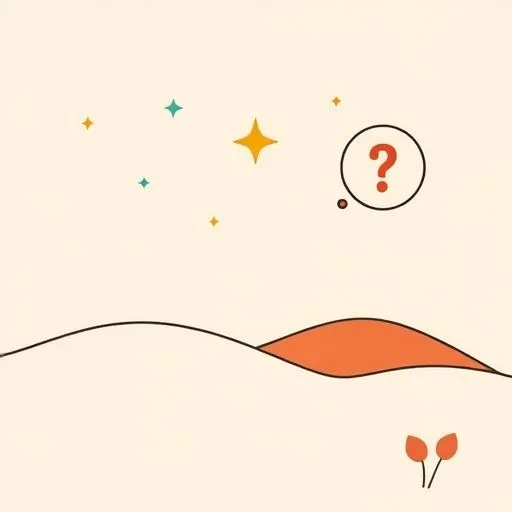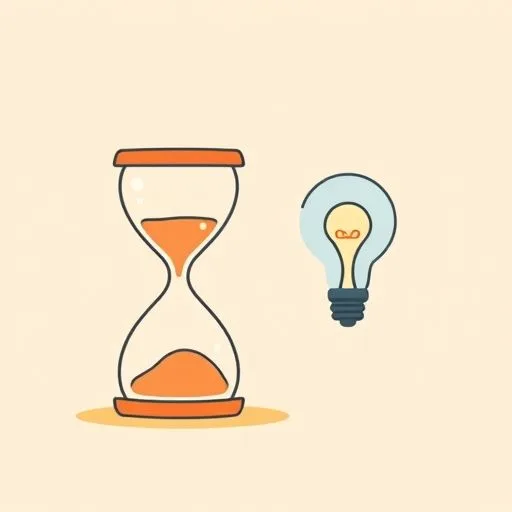
Picture this: your child asks, ‘Why do stars twinkle?’ before the words finish leaving their lips, the smart speaker chimes in with a perfect answer. But you catch that flicker in her eyes—the look that says, ‘I was about to wonder with them.’ We dads see it. Did you know kids ask way fewer questions when answers pop up instantly? That quiet space between ‘why’ and ‘how’? That’s where the real magic happens—right in that quiet space of wondering together. And when it slips away, something beautiful fades. Let’s talk about how we protect that spark.
Let Questions Breathe: Why Pausing Before Answers Changes Everything

We’ve all been there. A child’s big question hangs in the air, and before anyone can breathe, technology fills the silence. But here’s what I’ve learned watching parents I’ve watched handle this: curiosity grows in the pause. Not the answer itself. Think about it—you know how chefs set everything in place before cooking? It’s like that. When you let the question sit, magic happens. Try waiting just ten full seconds next time. What comes out? ‘Maybe it’s because clouds move?’ or ‘Can we look outside and see?’ That’s not just guessing—it’s their brain lighting up pathways for deeper learning.
See that moment when a mom hesitates to say ‘I don’t know’? That’s courage. It’s not about having all the answers; it’s about creating space for discovery. When we jump to Google or Siri too fast, we accidentally teach kids that answers are endpoints, not starting points. I’ve watched my partner turn off the speaker sometimes just to let our child’s imagination spin. No fancy tools needed—just presence. And in that stillness? Trust blooms. Because kids sense when we’re truly curious with them.
Next time, lean into the quiet. Say, ‘Hmm, that’s a great one. What do you think first?’ Watch their eyes change. That spark? It’s the sound of wonder taking root. Simpler than any app, but it’s the heart of what keeps curiosity alive.
The Messy Marvels: Why Getting It Wrong is Right for Learning

Think back to when you built forts as a kid—they collapsed constantly, right? But wasn’t that part of the fun? Now, AI gives perfect answers instantly, but real growth happens in the messy middle. I’ve seen parents I’ve watched handle this turn spills and mishaps into adventures. Like when paint dripped everywhere during a craft project, and instead of cleaning up fast, one parent whispered, ‘Look how it’s spreading—like rivers on a map!’ Suddenly, it wasn’t a mess; it was a discovery.
Research confirms what we’re seeing: kids who experiment and ‘fail’ develop stronger problem-solving muscles. AI can’t replicate that magic of watching a tower of blocks tumble and hearing, ‘Let’s make the base wider this time!’ It’s in those moments—when a parent reframes the ‘oops’ as ‘what if’—that kids learn resilience. They realize learning isn’t about getting it right; it’s about the courage to try again. I remember watching my partner let dinner burn slightly just so our child could learn why timers matter. It wasn’t perfect, but it was real.
That’s where wonder hides—in the beautiful imperfection.
So next time experiments go sideways, don’t rush to fix it. Ask, ‘What surprised you?’ or ‘What would you change?’ That’s where wonder hides—in the beautiful imperfection. Because when kids see us value the journey over the flawless result, they keep exploring fearlessly. That’s a gift no algorithm can give.
The Power of ‘I Don’t Know’: Building Bridges of Wonder Together

Here’s what hits me watching parents in action: when she says, ‘I’m curious too—let’s find out together,’ it’s like a quiet superpower. In a world of instant answers, admitting ‘I don’t know’ isn’t weakness; it’s an invitation. I’ve seen kids’ faces light up when a parent turns a question back to them—not as a test, but as shared exploration. ‘What if we draw our ideas before checking online?’ That simple shift? It flips the script from ‘parent knows all’ to ‘we’re in this together.’
It’s practical magic. Try making ‘I wonder’ part of your routine. Ask your child to teach you something new they discovered. They’ll sit up taller, more confident. For parents carrying so much, this isn’t just parenting—it’s honoring the child’s voice. And for us dads? It’s our chance to step up. Notice when she resists the urge to answer instantly. Support her by saying, ‘You’re right—let’s let them think first.’ Those late-night kitchen talks where you whisper, ‘I really don’t know, but isn’t it exciting?’—that’s the heartbeat of connection.
Imagine skipping the ‘right answer’ race. Instead: ‘This puzzle is tricky! What if we guess wrong first?’ Watch how they lean in. Because curiosity thrives when we’re all learners. And that shared wonder? It’s the golden thread weaving families closer—one beautiful ‘I don’t know’ at a time!
Source: Larry Ellison’s $1.3 billion bet to turn Oxford into the Next Silicon Valley: Inside the tech giant’s vision to revolutionize innovation, AI, and global health with the Ellison Institute of Technology, Economic Times, 2025/09/13 19:08:42
